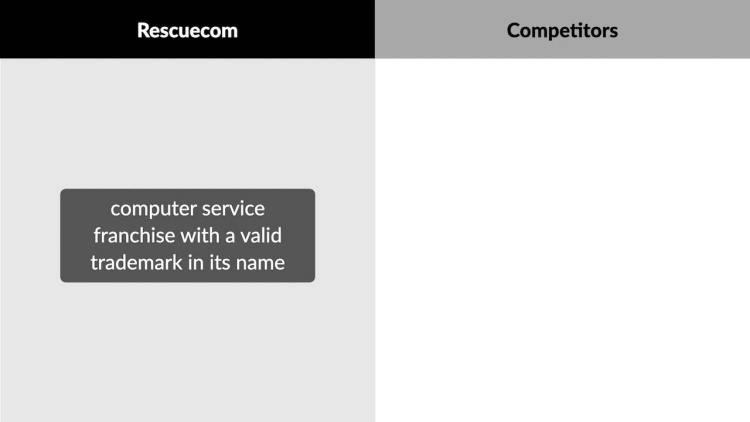Rescuecom Corp. v. Google, Inc.
United States Court of Appeals for the Second Circuit
562 F.3d 123 (2009)

- Written by Sean Carroll, JD
Facts
Rescuecom Corp. (Rescuecom) (plaintiff) was a computer service company. Rescuecom had a federal trademark for “Rescuecom.” Google, Inc. (Google) (defendant) operated an internet search engine and obtained revenue through advertising. Google sold advertising by allowing companies to ‘purchase’ certain search terms. If a user searched for one of those terms, Google placed a link to the company’s website above the search results. Google also had an advertising program called the Keyword Suggestion Tool (Tool). If a company purchased a search term, Google’s Tool suggested to the company that it also purchase a competitor’s brand name. Doing so would place the link to the company’s website above the search results for its competitor. Google, using its Tool, suggested Rescuecom’s “Rescuecom” trademark as a search term for Rescuecom’s competitors to buy. Rescuecom brought a trademark infringement suit against Google, alleging that the Tool’s suggestion of Rescuecom’s trademark constituted infringement. Specifically, Rescuecom alleged that a Google user would be confused after searching for “Rescuecom” and then seeing a link to a Rescuecom competitor come up as one of the “results.” Google filed a motion to dismiss the suit, alleging that its use of the trademark did not constitute “use in commerce” as is required by the Lanham Act for an infringement claim. The district court granted Google’s motion and dismissed the case. Rescuecom appealed.
Rule of Law
Issue
Holding and Reasoning (Leval, J.)
What to do next…
Here's why 907,000 law students have relied on our case briefs:
- Written by law professors and practitioners, not other law students. 47,100 briefs, keyed to 996 casebooks. Top-notch customer support.
- The right amount of information, includes the facts, issues, rule of law, holding and reasoning, and any concurrences and dissents.
- Access in your classes, works on your mobile and tablet. Massive library of related video lessons and high quality multiple-choice questions.
- Easy to use, uniform format for every case brief. Written in plain English, not in legalese. Our briefs summarize and simplify; they don’t just repeat the court’s language.





